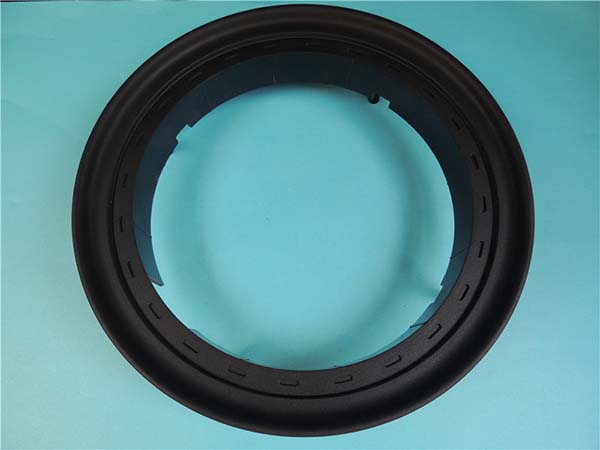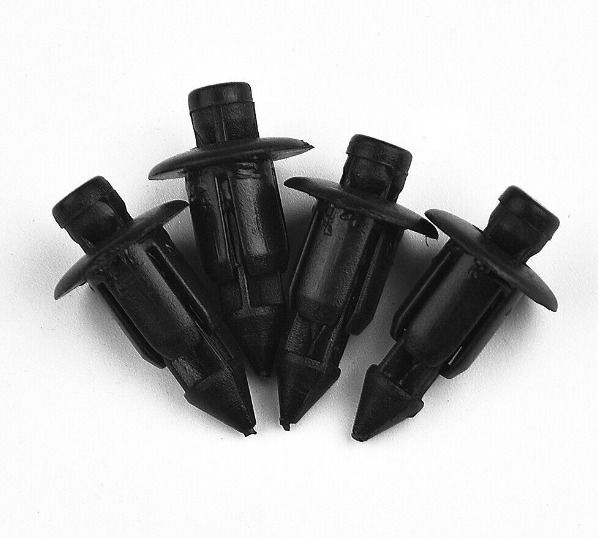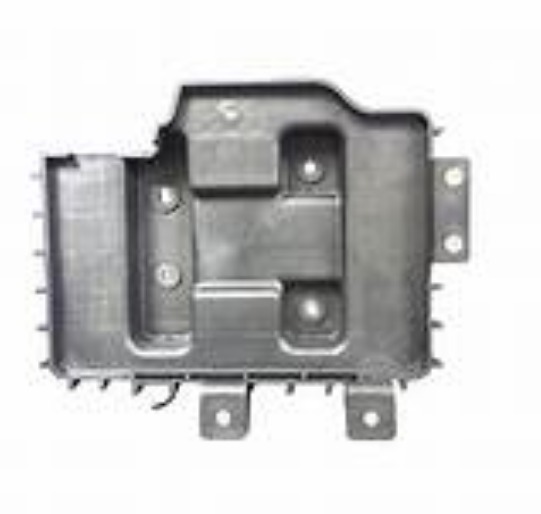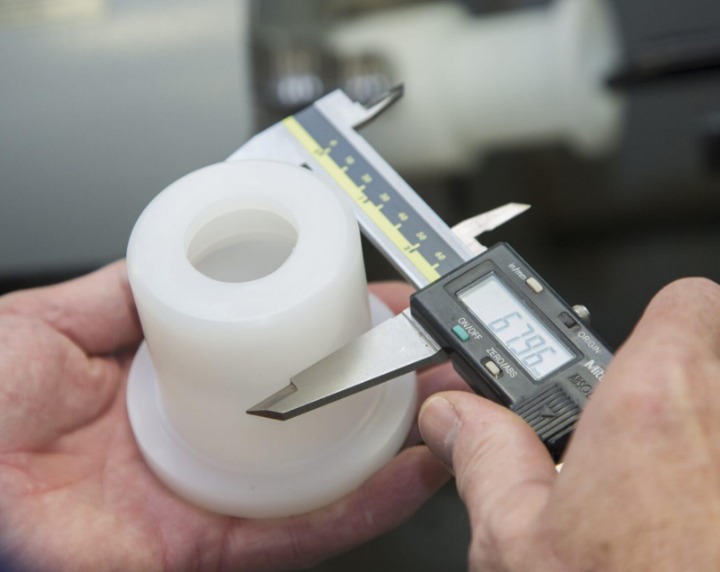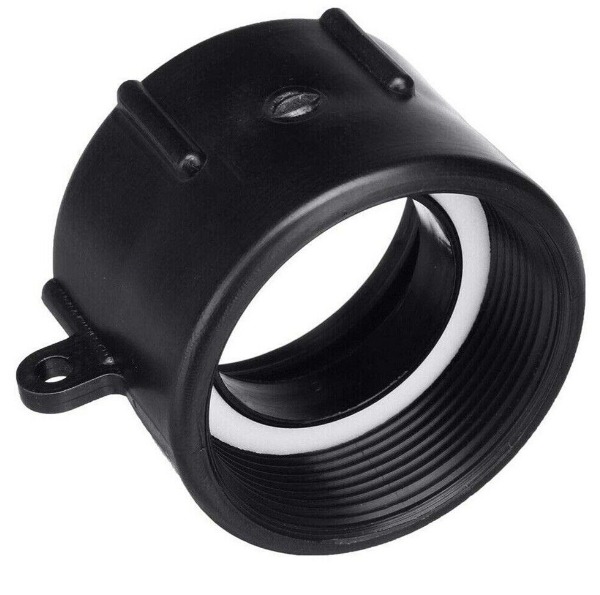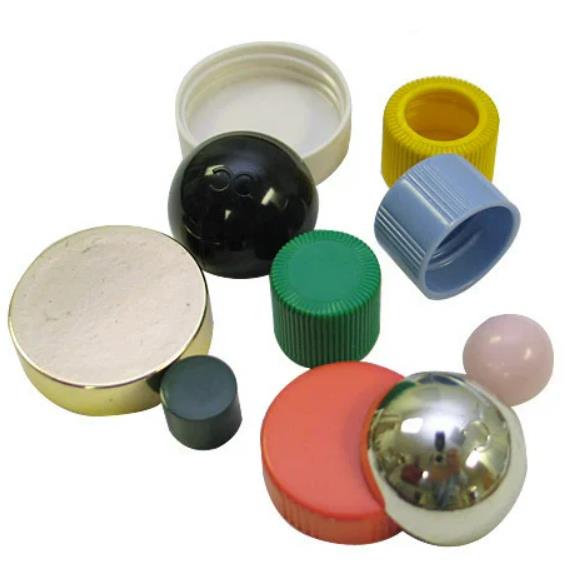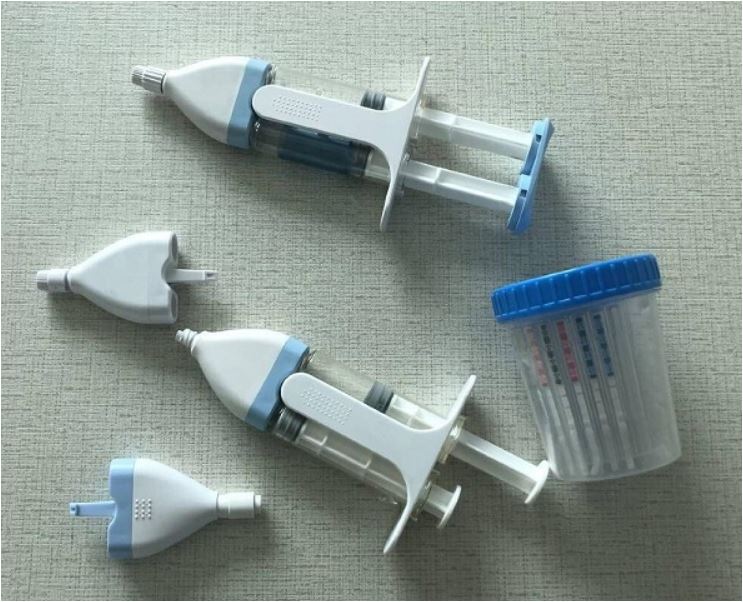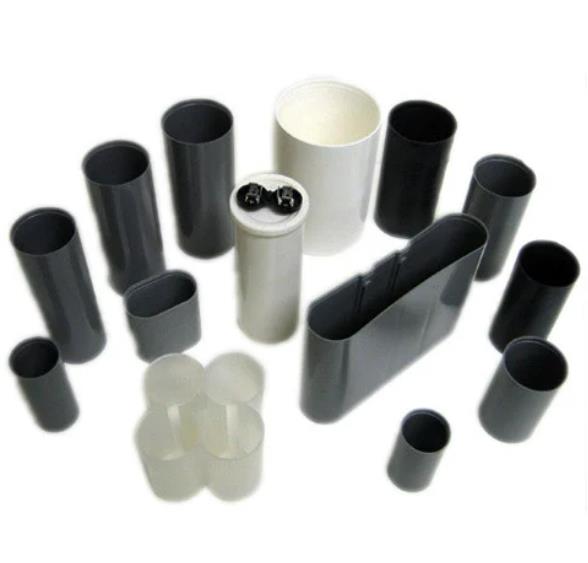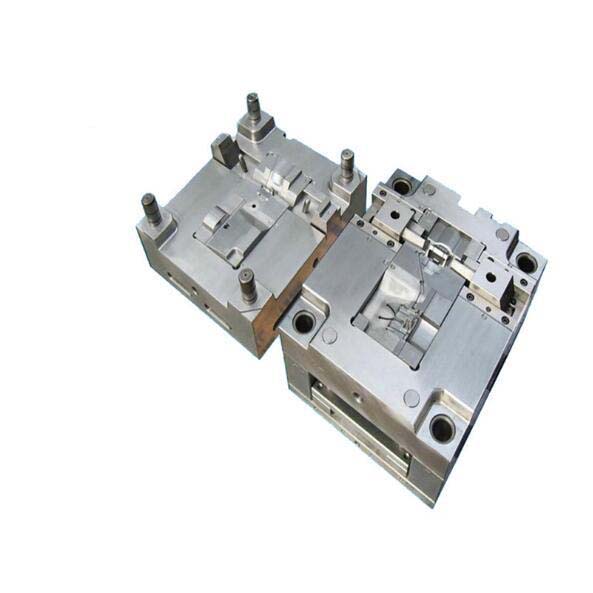Introduction
In the fast - paced world of modern manufacturing, plastic injection molding stands as a cornerstone technology. It has revolutionized the production of countless plastic - based products, from the tiniest components in electronics to large - scale automotive parts. This article delves deep into the realm of plastic injection molding, exploring its scientific principles, applications, and the ways it is advancing manufacturing processes.
Understanding Plastic Injection Molding
Plastic injection molding is a manufacturing process where molten plastic is injected under high pressure into a mold cavity. The basic principle behind this process is relatively straightforward yet highly effective. First, plastic raw materials, usually in the form of pellets or granules, are fed into the hopper of an injection molding machine. These materials are then transported through a heated barrel by a reciprocating screw. As the plastic moves through the barrel, it is gradually heated to its melting point, turning into a viscous, flowable liquid.
Once in a molten state, the plastic is forced, under high pressure, through a nozzle and into a precisely designed mold cavity. The mold cavity is the negative impression of the final product, and it determines the shape, size, and surface details of the plastic part. After the mold is filled with the molten plastic, it is cooled rapidly, either by air or water circulation within the mold itself. This cooling process solidifies the plastic, giving it the shape of the mold cavity. Finally, the mold is opened, and the newly formed plastic part is ejected.
This process is highly efficient and suitable for mass - production. For example, in the production of plastic bottle caps, an injection molding machine can produce hundreds or even thousands of caps per hour. According to industry statistics, in high - volume production runs, injection - molded parts can cost as little as a few cents each, making it an extremely cost - effective manufacturing method for large - scale production. The precision of plastic injection molding is also remarkable. It can achieve tolerances as tight as ±0.05mm, which is crucial for applications where exact dimensions are required, such as in the production of medical devices or electronic components.
The Process of Plastic Injection Molding
Step - by - Step Breakdown
- Raw Material Preparation: The journey of plastic injection molding begins with the selection and preparation of raw materials. Most commonly, plastic pellets made from polymers like polyethylene (PE), polypropylene (PP), acrylonitrile - butadiene - styrene (ABS), or polycarbonate (PC) are used. These pellets are carefully inspected for quality, ensuring they are free from contaminants and have the correct particle size. For instance, in the production of food - grade plastic containers, only high - quality, food - approved plastic pellets can be used. The pellets are then typically dried to remove any moisture. Moisture in the plastic can cause defects such as bubbles or voids in the final product. A common method of drying is using a desiccant dryer, which can reduce the moisture content to less than 0.02%.
- Heating and Melting: Once the raw materials are ready, they are fed into the hopper of the injection molding machine. From there, a reciprocating screw transports the pellets through a heated barrel. The barrel is divided into several heating zones, each with a different temperature setting. The temperature gradually increases from the hopper end to the nozzle end. For example, when molding ABS plastic, the temperature at the hopper end might be around 180°C, while at the nozzle, it could be up to 230°C. This temperature gradient ensures that the plastic melts evenly and becomes a highly viscous, flowable liquid, ready for injection.
- Injection: The molten plastic is then forced, under high pressure, through a nozzle and into the mold cavity. The injection pressure can range from 50 to 200 megapascals (MPa), depending on the complexity of the mold, the type of plastic, and the size of the part. High - pressure injection is crucial for filling complex molds with fine details. For small, intricate parts like electronic connectors, injection pressures at the higher end of the range may be required to ensure that the plastic reaches every corner of the mold.
- Cooling and Solidification: After the mold cavity is filled, the plastic needs to cool and solidify to maintain its shape. This is achieved through a cooling system within the mold, usually involving the circulation of water or air. The cooling time is a critical factor in the overall cycle time of the injection molding process. It can range from a few seconds for small, thin - walled parts to several minutes for larger, thicker - walled components. For example, a small plastic toy might have a cooling time of 5 - 10 seconds, while a large automotive bumper could require 30 - 60 seconds of cooling.
- Mold Opening and Part Ejection: Once the plastic has solidified sufficiently, the mold is opened, and the newly formed plastic part is ejected. This is typically done using ejector pins, which push the part out of the mold cavity. The ejector pins are strategically placed to ensure that the part is removed without causing any damage or deformation. In some cases, especially for parts with complex shapes or undercuts, additional mechanisms like slides or lifters may be used to facilitate the ejection process.
- Post - Processing: After ejection, the plastic part may undergo post - processing operations. These can include trimming excess material (such as flash or gates), sanding, polishing, painting, or assembly with other components. For example, a plastic smartphone case may be painted to give it an aesthetically pleasing finish and then assembled with other parts like buttons or a screen protector.
Key Parameters and Their Impact
| Parameter | Description | Impact on Product Quality | Example of Variation and Result |
| Temperature | Includes barrel temperature, nozzle temperature, and mold temperature. | Barrel and nozzle temperature affect the melting and flowability of the plastic. If too low, the plastic may not melt properly, leading to poor filling of the mold and defects like short - shots. If too high, the plastic may degrade, causing discoloration or brittleness. Mold temperature affects the cooling rate of the plastic. A low mold temperature can result in rapid cooling, which may cause warping or internal stress in the part. A high mold temperature can lead to longer cycle times but may improve the surface finish of the part. | For ABS plastic, if the barrel temperature is set 20°C lower than the recommended range, the injection molding machine may struggle to fill the mold completely, resulting in a part with missing sections (short - shot). If the mold temperature is 10°C higher than normal for a thin - walled part, the cycle time may increase by 20%, but the surface finish will be smoother. |
| Pressure | Comprises injection pressure, holding pressure, and back pressure. | Injection pressure is crucial for filling the mold. Insufficient injection pressure can lead to incomplete filling, while excessive pressure can cause flash (excess plastic around the edges of the part), over - packing, and increased internal stress. Holding pressure is applied after injection to compensate for the shrinkage of the plastic as it cools. Inadequate holding pressure can result in sink marks on the surface of the part. Back pressure is used during the plasticization process (melting of the plastic). It helps to improve the mixing and homogeneity of the plastic. Too low back pressure may lead to inconsistent plastic quality, while too high back pressure can cause over - heating of the plastic. | If the injection pressure for a medium - sized plastic part is reduced by 20%, it may result in a 30% increase in the occurrence of short - shots. Increasing the holding pressure by 10% for a part with a thick wall can reduce the number of sink marks by 50%. |
| Speed | Includes injection speed and screw rotation speed (during plasticization). | Injection speed affects how quickly the molten plastic fills the mold. A slow injection speed may cause the plastic to cool prematurely, leading to flow marks or weld lines in the part. A fast injection speed can help to reduce these defects but may also increase the risk of air entrapment (trapped air bubbles in the plastic). Screw rotation speed affects the rate of plastic melting and plasticization. A slow screw speed may result in insufficient plastic supply for injection, while a fast screw speed can cause over - heating of the plastic and inconsistent melting. | For a part with a complex shape, increasing the injection speed by 30% can reduce the number of flow marks by 40%, but it also increases the risk of air entrapment by 20%. If the screw rotation speed is decreased by 25%, the plasticization time may increase by 35%, potentially slowing down the overall production cycle. |
Applications of Plastic Injection Molding
Plastic injection molding's versatility has led to its widespread adoption across numerous industries. Its ability to produce high - quality, precise, and complex parts makes it an ideal manufacturing process for a vast array of products.
In the Automotive Industry
In the automotive sector, plastic injection molding plays a pivotal role. For example, the dashboard of a car is often made through plastic injection molding. Dashboards need to be lightweight yet durable, and injection - molded plastics can meet these requirements. They can also be designed with complex shapes to accommodate various instruments and controls. Car bumpers are another common application. Modern bumpers are made from impact - resistant plastics, such as polypropylene (PP) with additives. Injection molding allows for the production of bumpers with integrated features like fog - light recesses and mounting points. Headlight and taillight housings are also typically injection - molded. These parts require high - precision manufacturing to ensure proper fit and light - sealing properties. According to industry reports, approximately 50% of the interior components and 30% of the exterior components in a modern vehicle are made using plastic injection molding. This not only reduces the vehicle's weight, which in turn improves fuel efficiency, but also allows for greater design flexibility.
In Consumer Electronics
The consumer electronics industry heavily relies on plastic injection molding. Smartphone cases are a prime example. With the constant evolution of smartphone designs, injection molding enables the rapid production of cases in various shapes, colors, and with different features such as shock - absorption and grip - enhancing textures. Laptop and tablet housings are also commonly injection - molded. These parts need to be rigid enough to protect the internal components while being lightweight for portability. Injection - molded plastics like acrylonitrile - butadiene - styrene (ABS) or polycarbonate (PC) are often used for their strength and heat - resistance properties. In addition, smaller components such as buttons, bezels, and cable connectors in electronic devices are also produced through this process. The high precision of plastic injection molding ensures that these components fit together perfectly, contributing to the overall functionality and aesthetics of the product. It is estimated that over 80% of consumer electronic enclosures are made using plastic injection molding, highlighting its importance in this industry.
In the Medical Field
Plastic injection molding is crucial in the medical field. Syringes are one of the most common medical products produced through injection molding. They are made from medical - grade plastics like polypropylene (PP), which is biocompatible and can be sterilized easily. Medical device housings, such as those for blood glucose monitors, ultrasound machines, and surgical instruments, are also often injection - molded. These parts need to meet strict quality and hygiene standards. Injection molding allows for the production of components with smooth surfaces, which are easy to clean and disinfect. In addition, components for prosthetics and orthotics, such as custom - fitted insoles or limb sockets, can be created using injection molding with specialized materials. The precision of the process ensures a proper fit for patients, improving the effectiveness and comfort of these medical devices. The medical device industry's demand for high - quality, sterile, and precisely - made plastic components has driven the continuous improvement of plastic injection molding technology in this area.
In Other Industries
Plastic injection molding has applications in many other industries as well. In the household goods sector, items like plastic cutlery, storage containers, and kitchen utensils are mass - produced through injection molding. These products require different levels of durability, heat - resistance, and aesthetics, all of which can be achieved through the careful selection of plastics and molding techniques. In the aerospace industry, plastic injection molding is used to produce lightweight components for aircraft interiors, such as seat parts, overhead bin components, and ventilation ducts. The use of injection - molded plastics helps to reduce the weight of the aircraft, thereby improving fuel efficiency and performance. Even in the toy industry, injection molding is the primary manufacturing process for producing plastic toys of all shapes and sizes. From action figures to building blocks, injection molding allows for the cost - effective production of toys with bright colors and detailed features.
Yigu Technology's Perspective
As a non - standard plastic metal products custom Supplier, Yigu Technology deeply understands the significance of scientific plastic injection molding. We are equipped with state - of - the - art injection molding machines that can handle a wide range of plastic materials and complex mold designs. Our professional team, consisting of experienced engineers and technicians, has in - depth knowledge of the plastic injection molding process. They are proficient in optimizing process parameters to ensure high - quality product output.
We pride ourselves on our ability to customize solutions for our clients. Whether it's developing a new product from scratch or improving an existing one, we use scientific methods to analyze and address various challenges in plastic injection molding. This includes ensuring dimensional accuracy, reducing product defects, and enhancing production efficiency. Our commitment to quality control and customer satisfaction allows us to provide top - notch services in the field of plastic injection molding, helping our clients achieve their manufacturing goals.
FAQs about Plastic Injection Molding
What are the main advantages of plastic injection molding over other manufacturing processes?
Plastic injection molding offers several key advantages. First, it is highly efficient for mass - production, with the ability to produce a large number of parts in a short time. For example, a well - optimized injection molding machine can produce hundreds of small plastic parts per minute. Second, it provides high precision, achieving tight tolerances (as low as ±0.05mm in some cases), which is crucial for parts that require exact dimensions. Third, it allows for great design flexibility. Complex shapes, internal features, and fine details can be easily molded into the plastic parts. Additionally, injection - molded parts are generally consistent in quality, and the process can use a wide variety of plastic materials, each with different properties to meet diverse application requirements.
How can I ensure the quality of plastic injection - molded products?
To ensure the quality of plastic injection - molded products, several steps can be taken. First, carefully select and inspect the raw plastic materials. Check for any contaminants, ensure the correct material grade, and properly dry the pellets to remove moisture. Second, optimize the injection molding process parameters. This includes setting the right temperature (barrel, nozzle, and mold temperatures), pressure (injection, holding, and back pressure), and speed (injection and screw rotation speed). Regularly monitor and adjust these parameters during production. Third, maintain the injection molding machine and molds. Regularly clean the machine, check for any wear and tear on the screws, barrels, and molds, and perform necessary repairs or replacements. Fourth, implement quality control checks during and after the production process. Use inspection tools like calipers for dimensional checks and visual inspection for surface defects.
